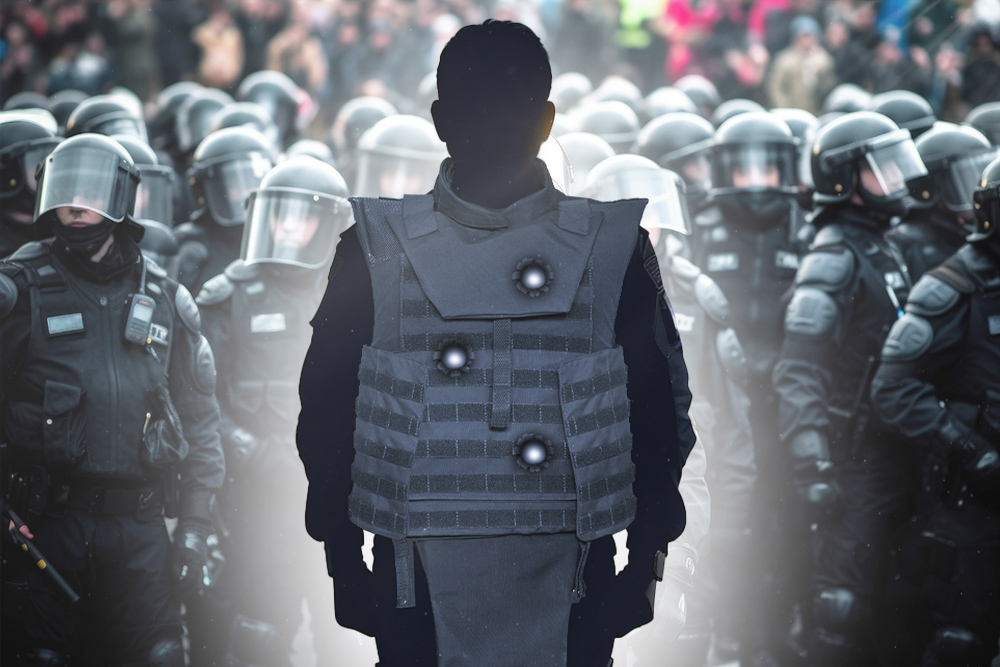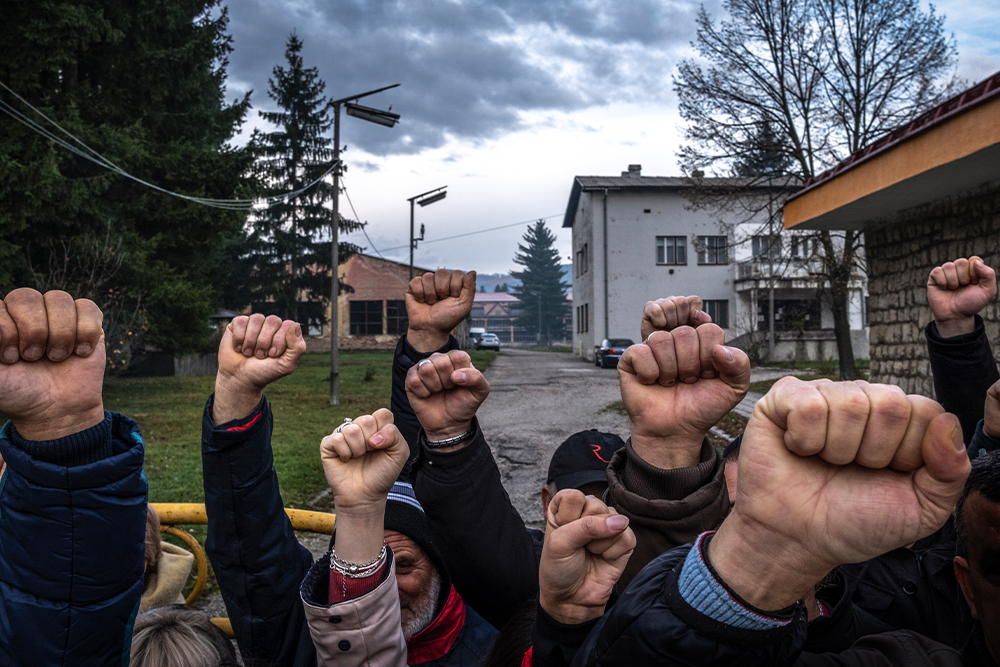“I know a colleague who is nicknamed Pancirko [Armor Guy] because he bought himself body armor for protection. And it was the guys sitting on committees and tender [commissions] who dubbed him ‘Armor Guy,’ and he became known as that among the folks. They make fun of him,” says a Sarajevo police officer who goes to interventions without protective equipment, exposing himself to bullets and stabbings. For years, the police have been working without proper protection, so in 2019, it seemed that the era of insecurity would end with the procurement of new ballistic vests.
The selected vendor – Danial’S and Koteks from Tešanj – modified and replaced the armor at the request of the Sarajevo Police Administration because they did not pass the so-called “visual test.” After two years, they got the green light for use, but the police refused to wear the gear as it did not provide the necessary protection. Thus, the body armor ended up collecting dust in the storage.
Having paid more than they cost on the market at that time, the Police Administration received the modified body armor without adequately checking them beforehand. The budget allocated BAM 861,301 for the procurement of 369 sets of body armor.
“A never-ending story… Eight hundred thousand BAM, body armor, this and that … while we, as small cogs in the big state machinery, wonder who of us is gonna be next (…) It’s Russian roulette,” says a Sarajevo police officer to CIN.
Body Armor Failed The Test
In March 2019, the Police Administration of the Sarajevo Canton Ministry of the Interior issued an open call for the purchase of 369 sets of body armor for members of the Police Support Sector and PD units for public order and peace. These are special vests designed to protect against cold weapons and firearm ammunition and made to strict standards.
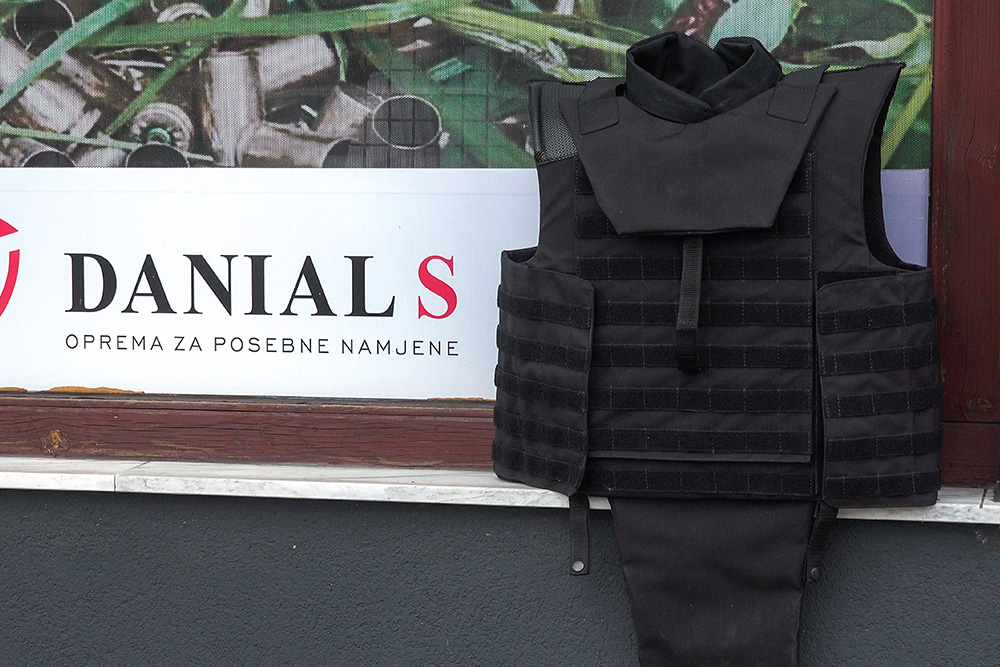
Nine months later, the then Police Commissioner Nusret Selimović signed a contract with the consortium of companies Danial’S and Koteks from Tešanj, and in June 2020, the body armor was delivered to the Police Administration.
That is when the problems began. The administration took two body armors: one was sent for shooting and stabbing testing at the NTS laboratory in Kansas, and the other for a visual inspection at the Sarajevo-based company Euroinspekt. The body armor passed the American test but not the domestic control: Euroinspekt held that the body armor did not look as required by the tender because the pockets and Velcro straps were incorrectly sewn, it lacked the appropriate collar, and there was no possibility of folding the side extensions. Euroinspekt did not want to comment on this.
The five-member Commission of the Police Administration tasked with visual inspection also noted the flaws. That is why Commissioner Selimović asked the Tešanj companies to make corrections.
The Police Administration returned the body armor for further modifications several times in 2020, claiming that they could not protect all vital parts of the police officers’ bodies. Commissioner Selimović refused to pay the agreed amount, stating that three analyses showed that the body armor was not fit for purpose.
“Well, I won’t pay you for something that… I asked for an ashtray, and you delivered a cup. And you threaten to sue me because I haven’t paid you,” Selimović said earlier.
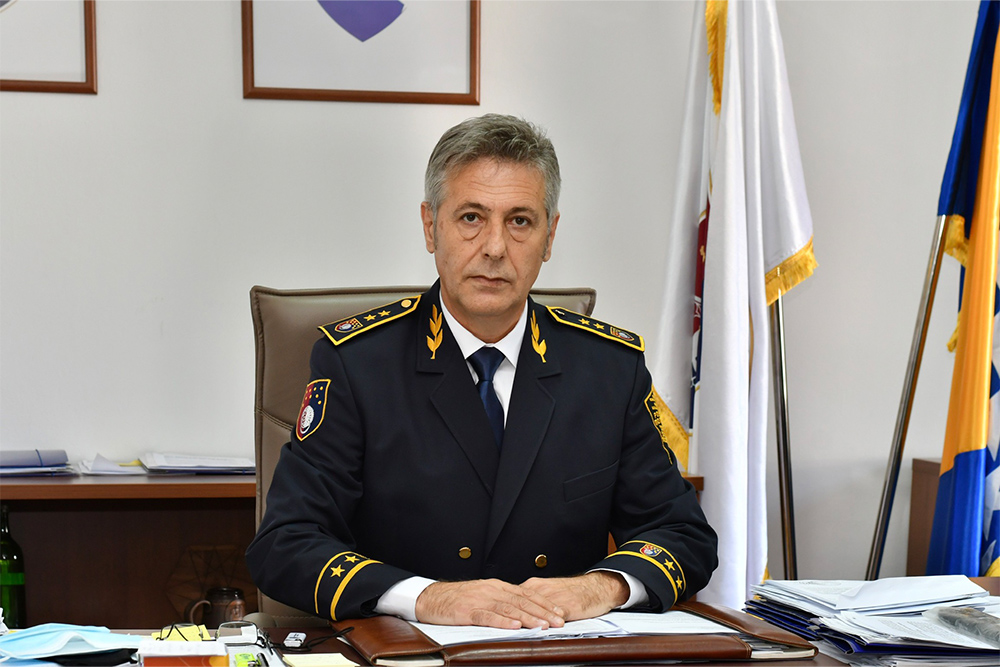
Experts interviewed by CIN reporters say that such products should not have parts sewn, attached, and welded to them, and that is precisely what the vendor did with these body armors. As a result, the impenetrable material did not fill the entire vest.
When a batch is submitted, there can be no modifications (…) In a system where the criterion is safety and functional reliability, where human life can be endangered, the batch either passes or fails,” explains ballistic expert and professor at the Faculty of Mechanical Engineering in Sarajevo, Berko Zečević. He adds that the tender did not specify the standard and level of protection for stabbing that was required from the bidders: “If you don’t specify the standard, then there is no criterion for checking the quality of the vest.”
During negotiations with the Police Administration, the consortium admitted mistakes and made the requested modifications at their own cost. However, the vendor’s representative and owner of Danial’S, Haris Sejdić, claims that the body armor was made in accordance with the tender specification and that the modifications were made so that the Administration would pay for the goods.
“We were forced to make modifications to get our BAM 860,000,” says Danial’S employee Hamza Hotić.
Subsequent demands from the Police Administration show that the body armor was not actually made as per the specification, which the vendor justified by the insufficiently precise demands stated in the tender.
The labels on the vests delivered by Tešanj companies in 2020 said “VGTec Limited for Danial’S”, although there was no mention of collaboration with this company in the contract.
According to director Sejdić, the British company made the vests because they deemed it the safest “given their more extensive experience”. The consortium later refined the vests. He claims this was not subcontracting because it did not involve the resale of the finished product.
Ožegović from TIBiH says that, according to the law, any assignment of part or all of the contract is considered subcontracting, and the Public Procurement Agency of BiH adds that the bidder cannot enter into subcontracts without the prior written approval of the contracting authority.
Former Commissioner Selimović claims he was not informed about VGTec’s involvement.
Continuation Of Cooperation Instead Of Contract Termination
Commissioner Selimović informed the Canton Sarajevo Attorney General about the problems with the delivered body armor.
“The contracting authority should have terminated the contract after the first, or perhaps the second reclamation since the vendor was obviously unable to do the job,” says Damjan Ožegović, legal affairs associate at Transparency International BiH.
Commissioner Selimović did not go down that route because, as he says, he feared a lawsuit, and additional loss of time and money, and believed it was “less painful this way”.
Since the modified body armor did not pass the new visual inspections, the consortium and the Police Administration agreed to have new ones produced.
“I did it because it is better to get injured than killed”, says Sejdić.
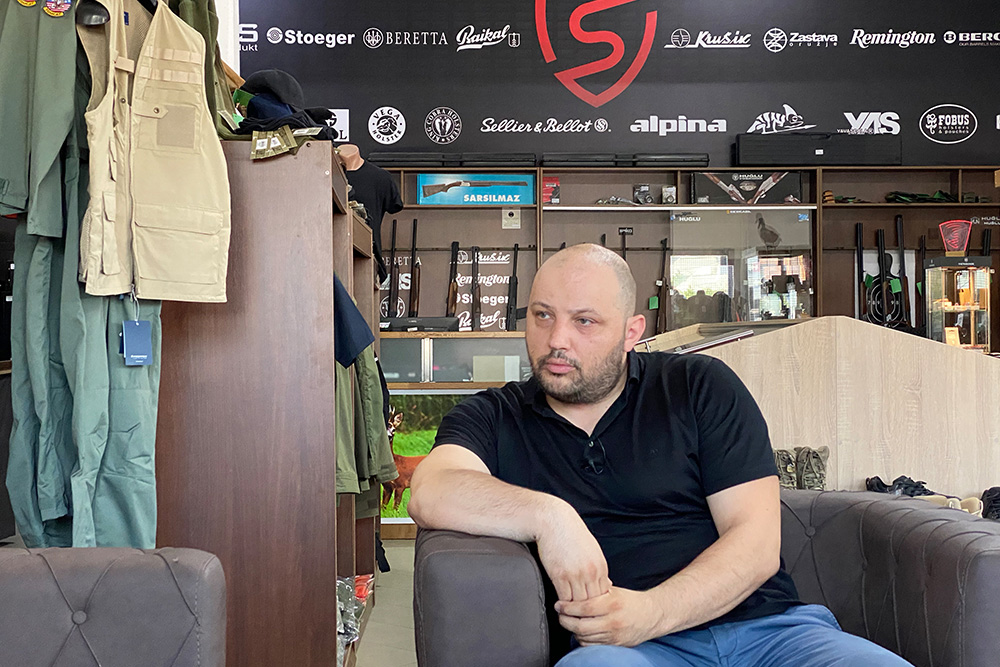
In April 2021, the vendor sent the armor for ballistic analysis to the TNO laboratory in the Netherlands and received confirmation that the tested sample met the required criteria.
Subsequently, Euroinspekt inspected one sample, and the Commission inspected four randomly selected sets of body armor, both confirming that the goods visually met the required conditions. The police accepted the new armor and paid the vendor BAM 861,000.
However, three months after the delivery, the armor did not pass the final test. Members of the Support Unit received 99 sets of armor and noticed certain defects. They refused to wear them, so Commissioner Selimović for the first time tasked the Commission with examining each armor individually.
The Commission found that 304 vests did not meet the criteria, as protective plates were shifting within, thus leaving parts of the body unprotected.
The Administration was thus back at the beginning, but this time without money.
“A police officer has to risk his/her life because those who were supposed to provide them with that police vest were not capable of doing so”, said Viktor Ćatić, the president of the Governing Board of the Union of Police Officers, Civil Servants, and Employees of the Sarajevo Canton.
In the meantime, the vendor sued the police, demanding indemnification of 600,000 BAM for the costs incurred during the finishing and making of new bulletproof vests, and slightly more than 100,000 BAM interest due to late payment. The Police Administration responded with a countersuit seeking the termination of the contract and the return of 861,301 BAM.
“These gentlemen have vests they need, which they can use, but they refuse to use them. Why they won’t use them, that’s their problem, not mine,” says Danial’S director Sejdić.
Requirements “Somewhat” Fulfilled
The Sarajevo Cantonal Police Administration paid BAM 2,334 per bulletproof vest.
In 2021, for vests of the same protection level, the police in Brčko paid Danial’S 585 BAM per piece, and the Judicial Police paid 1,489 BAM.
“It was not me who set the price, it wasn’t the company (…) it was the contracting authority who established the estimated value. Perfect, have them investigate who did it”, says Sejdić.
According to Professor Zečević and Croatian companies selling ballistic vests -Spart-Tac and Croshield, the realistic price for this standard and level of protection would be between 900 and 1,700 BAM per piece.
For this amount of money, the police could have purchased about a hundred more vests.
Sarajevo police officers shy away from talking about this topic. Those interviewed by CIN reporters do not want to go public because, in addition to fearing for their lives, they also fear disciplinary proceedings. One of them says he took an oath to take a bullet to protect others but wishes he had a vest.
“I would be more functional,100 percent. Then maybe I would be braver during interventions; I would do interventions better because I know I am safe.”
The police administration is also silent on this issue. They refused to disclose to CIN reporters who wrote the tender and set the price. Members of the Commission for the visual inspection of vests contacted by reporters also refused to talk. Former Commissioner Selimović requested disciplinary action against the Commission members, but they were all relieved of liability. He claims he couldn’t have done anything more. The Police Administration refused to provide information about the process, claiming it is an internal procedure, and they also refused to allow access to documents because the matter is pending before the Sarajevo Canton Prosecutor’s Office. The Prosecutor’s Office is investigating the allegations from the report that was submitted to them anonymously and officially by the police.
The new Police Commissioner, Fatmir Hajdarević, has been avoiding the discussion on this matter for five months.
“It’s a veil of secrecy, a veil of silence. Perhaps so that those responsible would not be prosecuted. We cannot say that it is no one’s fault that 800,000 BAM was thrown down the drain. Someone must be held accountable”, concludes the president of the Union Ćatić.
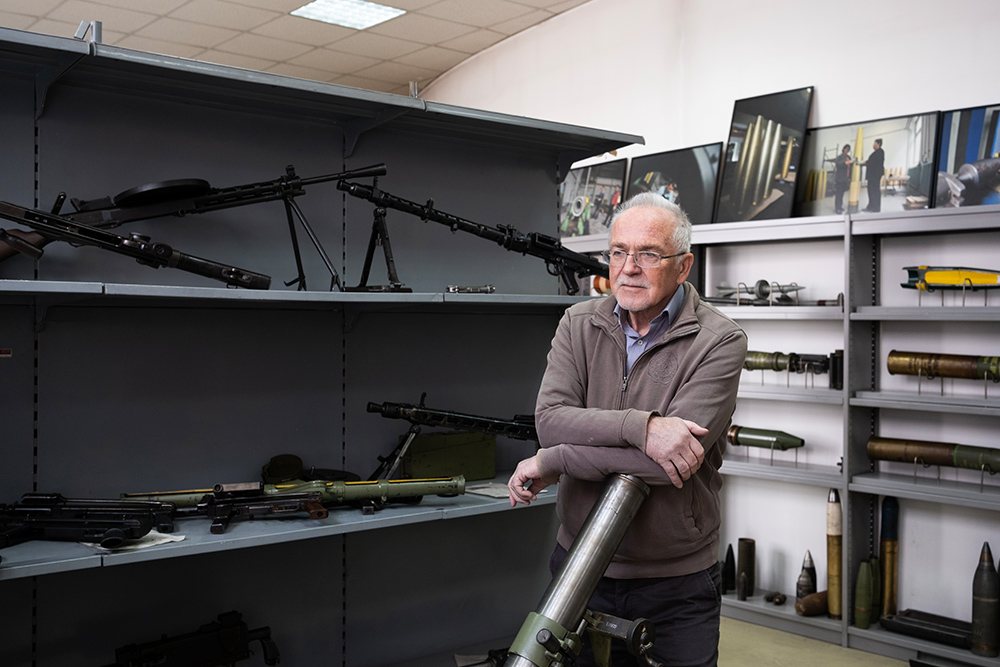
Instead, the Police Administration, amid procurement problems, purchased 20 vests from Danial’S for BAM 42,120 in November 2020. The money was donated by the Novi Grad municipality in Sarajevo for police officers working in the area. The tender sought the same conditions as for the 369 vests. Director Sejdić claims they made identical protective vests, while former Commissioner Selimović claims he could not recall the details.
The Administration had no objections to this procurement.

